The Role of Peer Support in the Rehabilitation Journey
Peer Support: A Cornerstone in Sustainable Recovery
Table of Contents
Understanding the Power of Peer Support in Rehabilitation
Peer support is a vital component in the pathway to recovery for individuals facing mental health challenges and substance use disorders. This form of support involves giving and receiving non-professional assistance from individuals with similar lived experiences. Rooted in principles such as shared understanding, empathy, respect, and hope, peer support fosters a sense of community and empowerment that complements clinical interventions. As the recovery landscape evolves, the role of peer support becomes increasingly recognized for its ability to promote long-term wellness, reduce stigma, and facilitate holistic healing.
Fundamentals and Benefits of Peer Support in Recovery
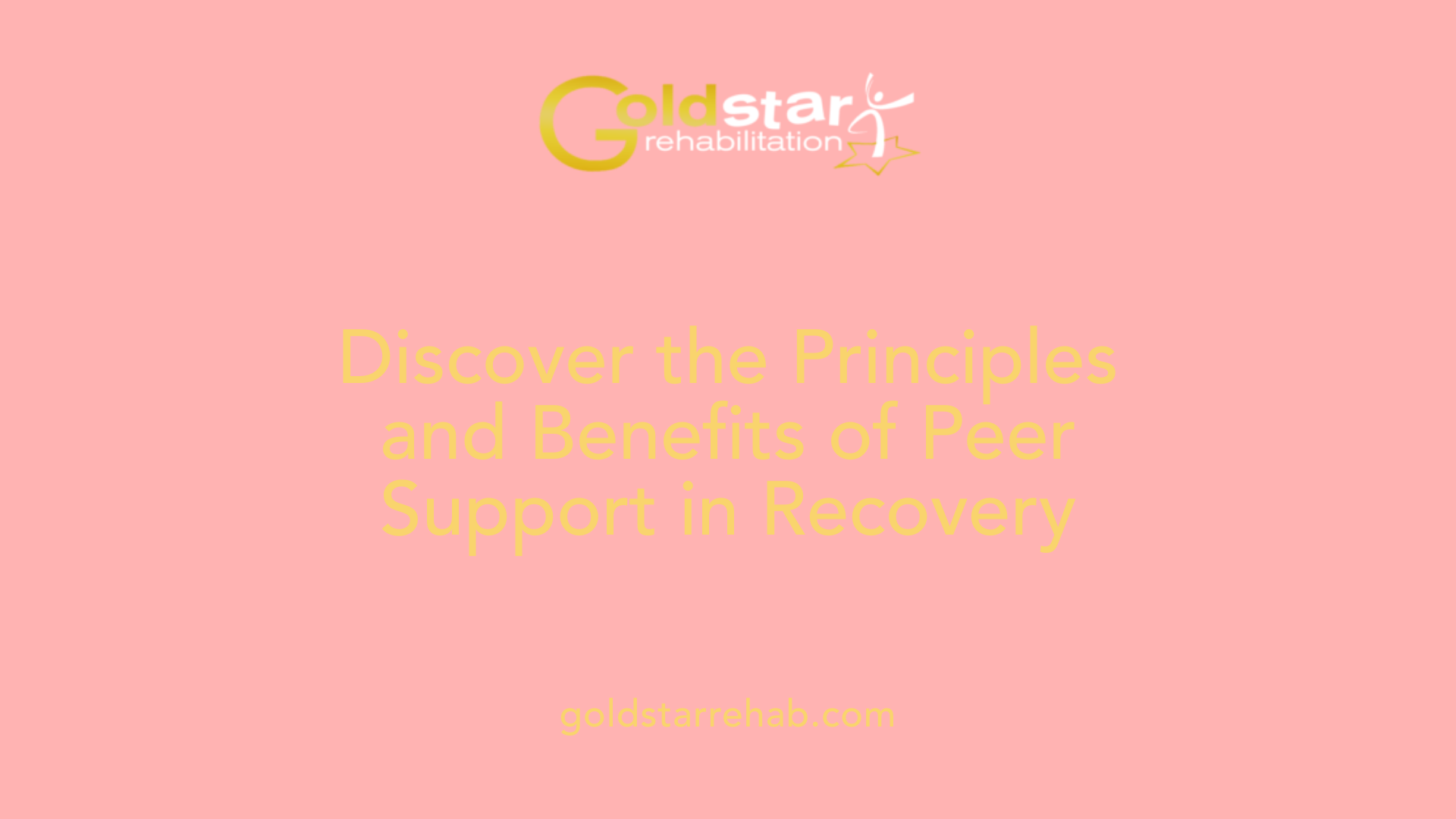
What are the principles and benefits of peer support in recovery?
Peer support in recovery is grounded in core principles such as shared experience, mutual support, respect, empathy, and hope. It operates within a voluntary, person-centered framework, emphasizing the importance of building on individuals' strengths and fostering trust. Peer support encourages collaborative relationships that are non-judgmental and trauma-informed, allowing individuals to feel safe and understood.
This approach promotes hope and self-determination by enabling individuals to actively participate in their recovery journey. The process is driven by personal goals and preferences, which empowers people to take control over their recovery. The use of shared experiences helps reduce feelings of isolation, build a sense of community, and increase motivation to maintain progress.
Benefits of peer support extend beyond emotional safety and understanding. It provides practical guidance, offers a resilient support network, and fosters personal growth through shared learning and reciprocity. The flexibility of peer support means it can be tailored to meet particular needs, whether through face-to-face groups, online communities, or one-on-one mentoring.
Importantly, peer support complements clinical care, enhancing engagement with treatment, reducing relapse risks, and supporting long-term sobriety or mental health stability. Overall, these principles and benefits demonstrate how peer support is a vital component of holistic recovery efforts, promoting hope, empowerment, and sustained well-being.
The Role of Peer Support in Mental Health and Substance Use Recovery
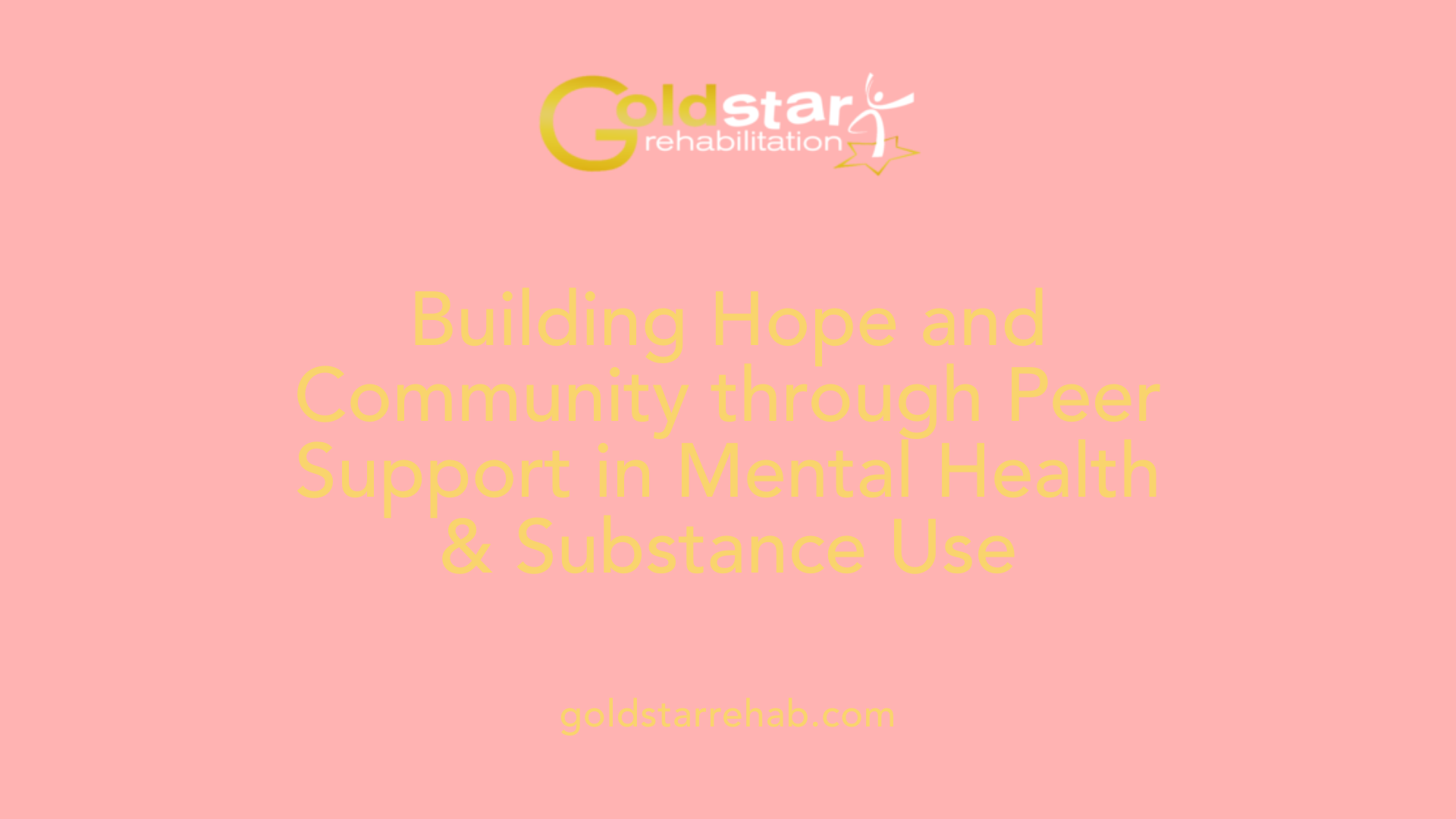
What is the role of peer support in mental health and substance use disorder recovery?
Peer support involves individuals with lived experience of mental health challenges or addiction providing assistance, understanding, and guidance to others currently undergoing recovery. This shared experience helps to foster a sense of hope and motivation, showing individuals that recovery is achievable. Peer supporters and groups contribute significantly by creating a safe, empathetic environment where individuals can express their fears, setbacks, and successes without judgment.
One of the most impactful aspects of peer support is its ability to build social connections and reduce feelings of isolation. Many people in recovery experience loneliness, which can hinder progress. Peer groups and support workers help fill this gap by promoting community, shared responsibility, and mutual encouragement.
Beyond the immediate treatment setting, peer support extends its influence into everyday life. It encourages ongoing engagement, helping individuals stick to their recovery goals outside of formal therapy or medical treatment. By sharing practical advice and personal stories, peer supporters motivate individuals to maintain sobriety, manage cravings, and stay committed.
Research indicates that peer support can improve treatment adherence and engagement, leading to higher rates of abstinence and lower relapse risks. Programs like mutual aid groups (e.g., AA and NA), peer mentoring, and online communities exemplify how connecting with others with similar experiences enhances recovery outcomes.
In summary, peer support plays a crucial role in bolstering hope, building social networks, and supporting sustained recovery. While more research continues to explore its full potential, existing evidence highlights peer support as an indispensable component of holistic addiction and mental health treatment strategies.
Peer Support Groups: Catalysts for Rehabilitation and Long-Term Sobriety
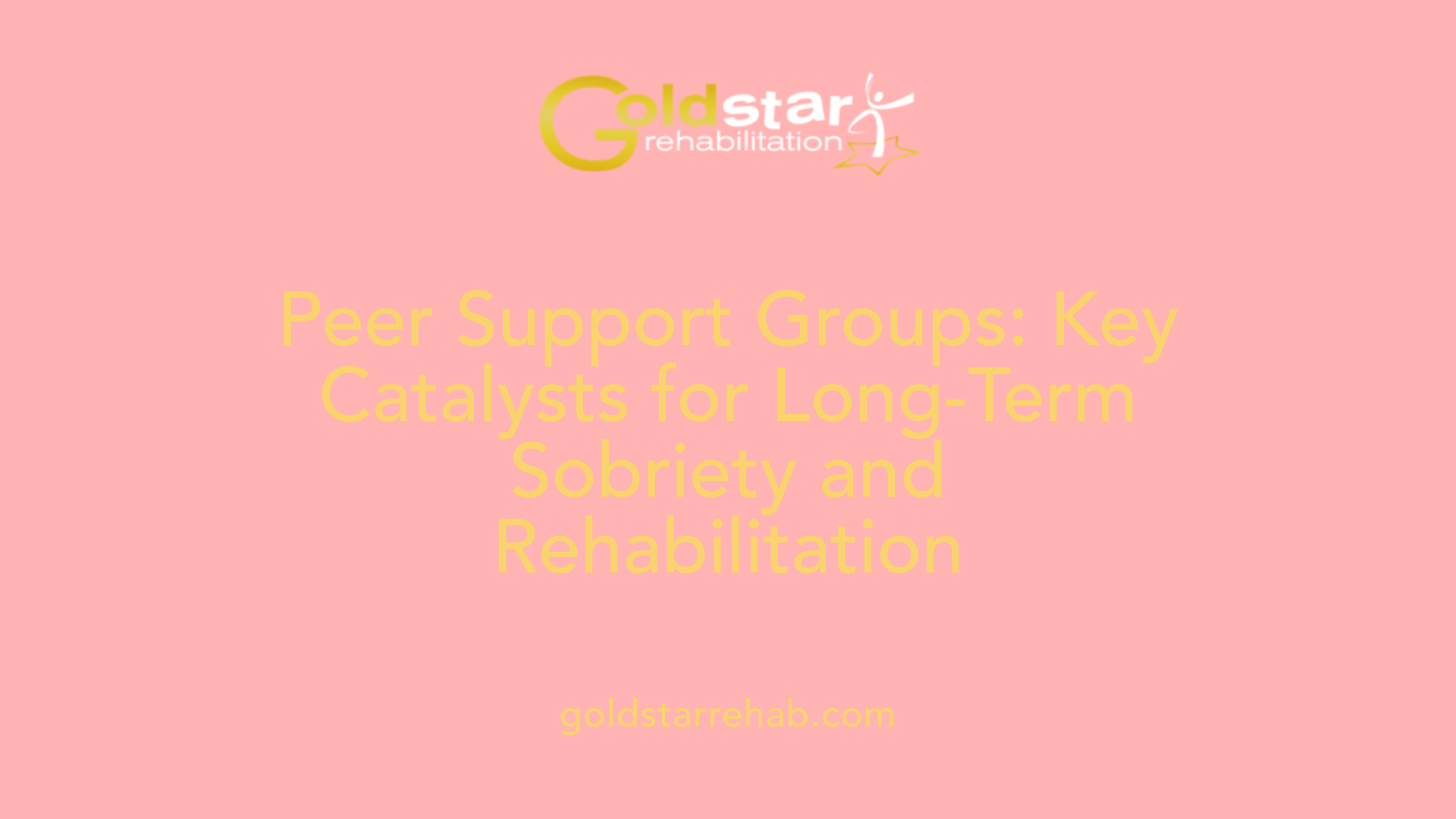
How do peer support groups contribute to the rehabilitation process?
Peer support groups play a vital role in addiction recovery by creating a safe and empathetic environment where individuals can openly share their experiences and challenges. These groups foster emotional encouragement and offer practical coping strategies, which are essential for overcoming addiction.
By participating in peer support settings, individuals often become more engaged in their treatment plans. The sense of accountability within these groups motivates members to stay committed to sobriety, while the feeling of belonging reduces feelings of loneliness and social isolation that frequently hinder recovery.
Research indicates that involvement in peer support groups results in higher abstinence rates and lower relapse occurrences. Participants also experience improvements in mental health, including reductions in depression and anxiety. Peer mentors and advocates within these groups help guide individuals through difficulties, connecting them to community resources and strengthening their long-term recovery foundation.
Overall, peer support groups complement professional treatment by empowering individuals, building community bonds, and encouraging ongoing personal growth. This integrated approach enhances the likelihood of sustained sobriety and supports a successful transition back into everyday life.
The Impact of Peer Workers in Supporting Recovery Efforts
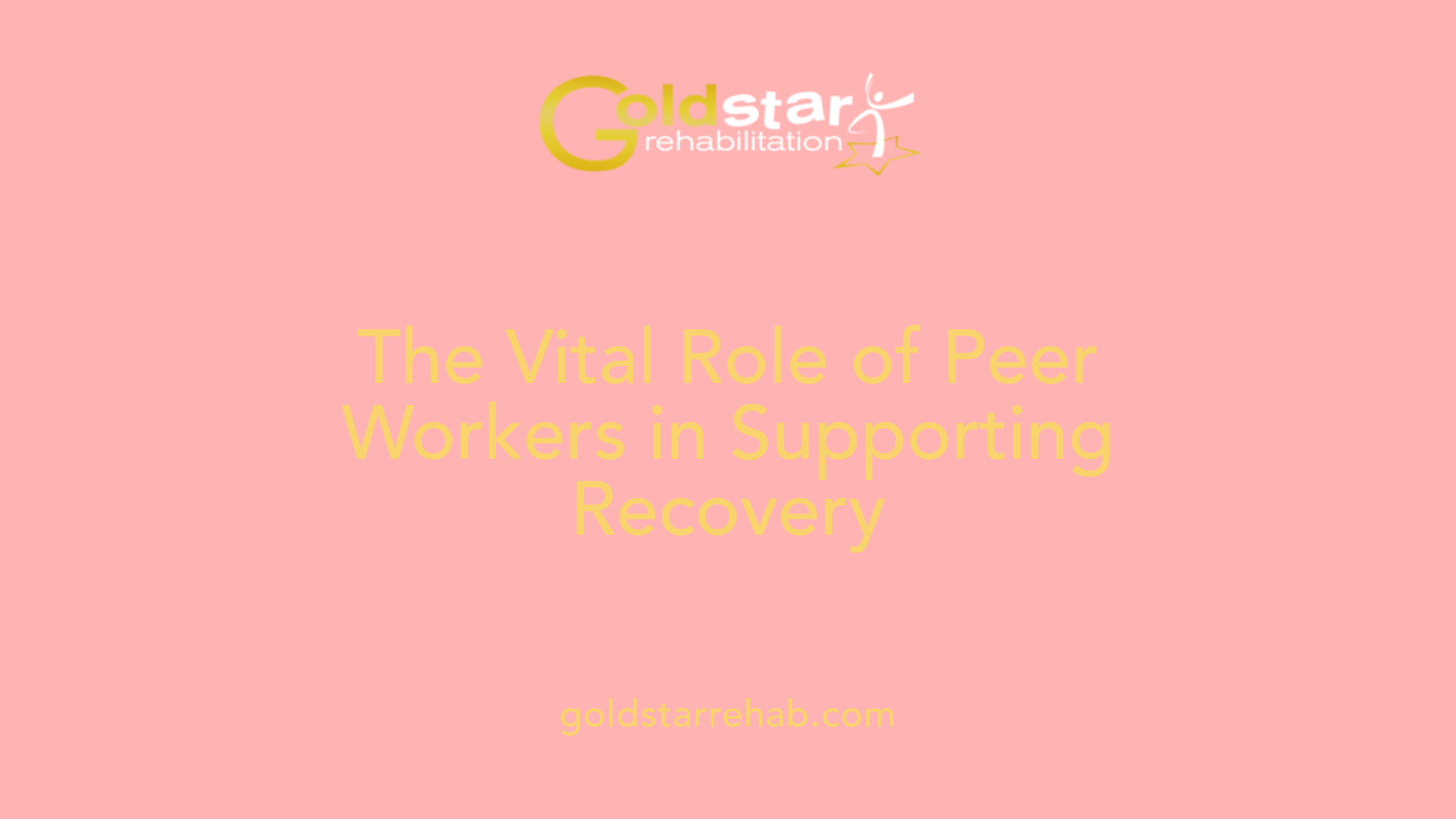
What support do peer workers provide during recovery efforts?
Peer workers play a vital role in assisting individuals on their recovery journey by drawing on their own lived experiences with addiction or mental health challenges. They establish trusting and empathetic relationships that foster hope and motivation. Through emotional encouragement, peer workers help clients navigate complex feelings such as fear, shame, or uncertainty, which are common barriers to recovery.
In addition to emotional support, peer workers offer practical guidance by helping individuals access resources and services within the community, like housing, healthcare, or support groups. They serve as advocates for recovery, motivating clients to stay engaged in treatment and healthy activities.
Beyond individual mentoring, peer workers facilitate group sessions, providing a safe space for sharing experiences and reducing feelings of isolation. Their presence helps normalize struggles associated with recovery, making the process less overwhelming.
They also promote ongoing community involvement and social connection, which are crucial for long-term stability. Through leadership in group activities and community outreach, peer workers foster a sense of belonging and self-efficacy.
Overall, the support provided by peer workers is integral to fostering resilience and empowering individuals to sustain their recovery, improving outcomes such as treatment retention, relapse prevention, and overall well-being.
Evaluating the Effectiveness and Organizational Aspects of Peer Support
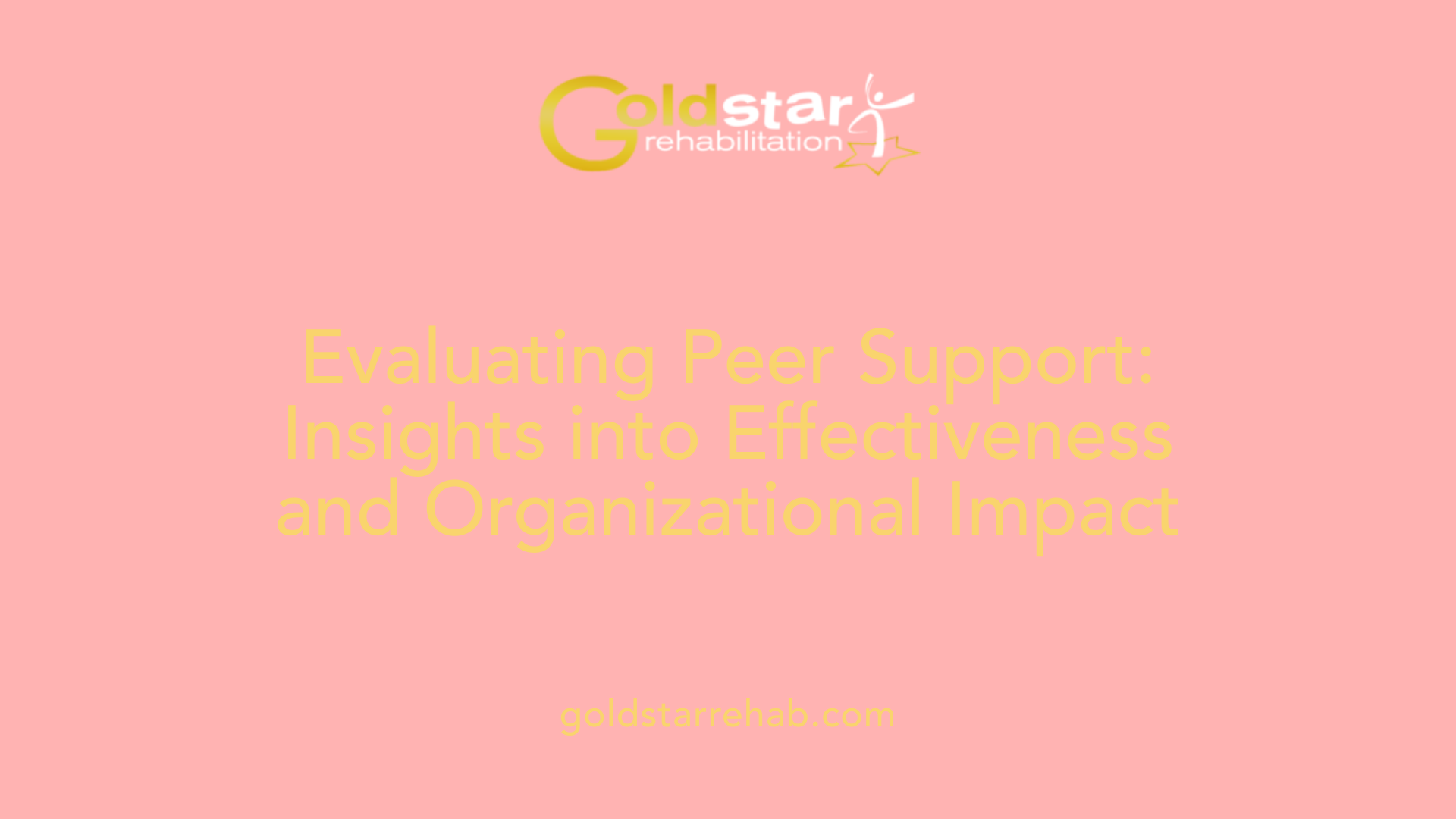
What evidence exists regarding the effectiveness of peer support in recovery?
Research shows that peer support can significantly foster hope, motivation, and social connections among individuals in recovery from addiction or mental health challenges. Studies indicate that peer support helps increase engagement with treatment, reduce hospital readmissions, and improve overall well-being. Meta-analyses reveal small but meaningful effects on personal recovery and symptom management, such as lowering anxiety levels. For example, in hospital settings, peer support often enhances hope and empowerment, aiding individuals in maintaining sobriety or managing mental health symptoms.
However, the strength of the evidence varies. Many studies face limitations like risk of bias, differences in intervention types, and inconsistent outcome measures. While some research highlights improvements in quality of life, others show mixed results, especially regarding online or informal peer support mechanisms. Overall, evidence supports the benefits of peer support, but emphasizes that more rigorous, standardized research is needed to confirm its full impact on recovery outcomes.
Special Considerations and Integrations for Complex Needs and Treatment Models
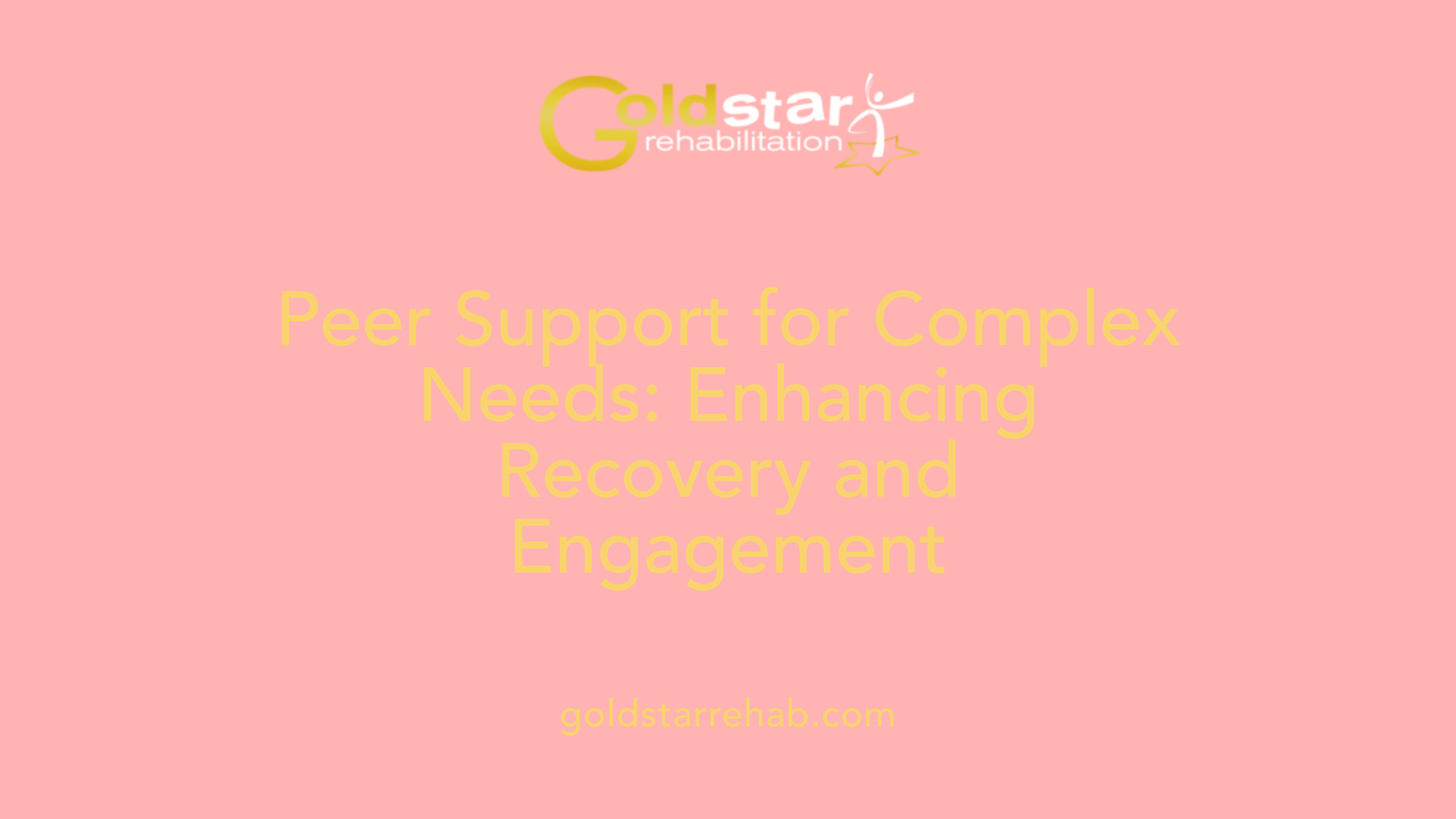
How important is peer support for individuals with complex needs or dual diagnoses?
Peer support plays a vital role for those facing complex health conditions, such as dual diagnoses involving both mental health and substance use issues. It offers tailored understanding and validation from individuals who have experienced similar struggles, fostering trust and reducing feelings of isolation.
Participation in peer-led groups, including mutual aid organizations like AA or NA, or specialized recovery programs such as Dual Diagnosis Anonymous (DDA), has been linked to positive outcomes. These include reductions in substance use, improvement in psychiatric symptoms, and an overall enhancement in quality of life.
Beyond symptom management, peer support encourages social skill development, boosts self-confidence, and encourages sustained engagement with treatment plans. This community-based approach complements formal clinical interventions by providing emotional support, practical guidance, and motivation.
Importantly, peer networks help destigmatize these conditions, empowering individuals to actively participate in their recovery journey. The sense of belonging and hope fostered through these support systems enhances resilience and helps individuals navigate ongoing challenges.
Overall, integrating peer support into treatment routines significantly boosts recovery prospects and promotes long-term stability for those with complex health needs.
Fostering a Collaborative and Supportive Recovery Environment
In conclusion, peer support remains an essential pillar of comprehensive rehabilitation efforts. Its principles of mutual respect, shared experience, and hope foster an environment conducive to healing, resilience, and long-term recovery. By addressing organizational challenges, integrating into varied treatment models, and tailoring approaches for individuals with complex needs, peer support can unlock transformative potentials. As research continues to grow and practices evolve, embracing peer support as a core component promises to enhance recovery outcomes, reduce stigma, and build stronger, more connected communities dedicated to sustained well-being.
References
- Benefits of peer support groups in the treatment of addiction - PMC
- The Role of Peer Support Workers in Treatment and Recovery
- Peer Support Workers for those in Recovery - SAMHSA
- The role of peer support in recovery among clients with mental ...
- The Importance of Peer Support in Addiction Recovery - Rehabs UK
- The Critical Role of Peer Support in Recovery - Zepf Center
- The Role of Peer Support in Addiction Recovery for Professionals
.png)








%20(1).jpg)




.jpg)





.jpg)

.jpg)











